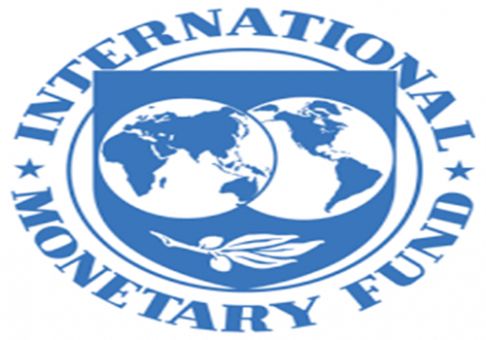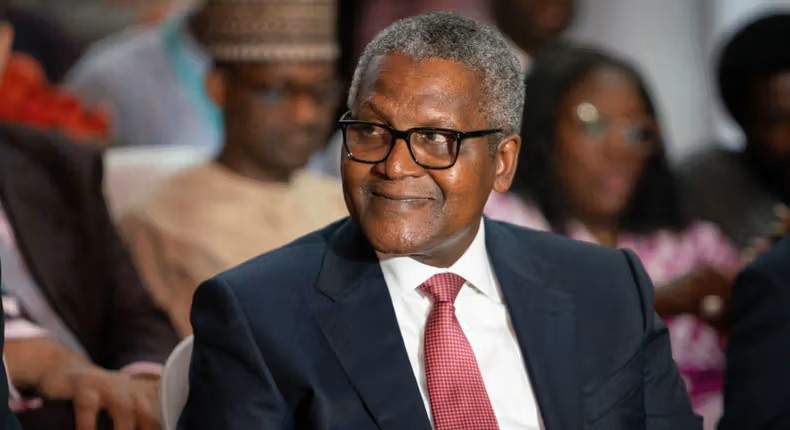 The International Monetary Fund (IMF) has revised its global economic growth projections for 2025 downward amid escalating trade tensions and a surge in protectionist policies across major economies. This stark revision was detailed in the IMF�s latest World Economic Outlook (WEO) report, presented during the ongoing Spring Meetings of the IMF and World Bank in Washington, D.C.
The International Monetary Fund (IMF) has revised its global economic growth projections for 2025 downward amid escalating trade tensions and a surge in protectionist policies across major economies. This stark revision was detailed in the IMF�s latest World Economic Outlook (WEO) report, presented during the ongoing Spring Meetings of the IMF and World Bank in Washington, D.C.
According to the Fund, the global economy is bracing for slower growth in the coming year, as tit-for-tat tariffs�most notably between the United States and its trading partners�reshape the global trade landscape. The IMF now projects global GDP growth to decline to 2.8% in 2025, a significant drop from the 3.3% forecast issued in its January 2025 update. It forecasts a slight rebound to 3.0% in 2026, but even this is well below the historical average of 3.7% recorded between 2000 and 2019.
For Nigeria, the IMF has reduced its 2025 economic growth forecast to 3.0%, a modest downgrade from the 3.2% projection issued in October 2024. Though the drop may appear marginal, it reflects growing concerns about the impact of global trade disruptions and declining oil prices on the Nigerian economy, which remains heavily reliant on crude exports for foreign revenue.
Speaking in Washington, Nigeria�s Minister of Finance and Coordinating Minister of the Economy, Mr. Olawale Edun, noted that the country is hopeful that institutions like the IMF will continue to offer support and guidance amid what he described as �heightened global uncertainty.�
�The Bretton Woods institutions remain vital partners for countries like Nigeria, particularly in providing a safety net and access to development finance in periods of global economic stress,� Edun stated.
The latest WEO update points to a dramatic escalation in global trade tensions, particularly the implementation of near-universal tariffs by the United States as of April 2. These measures, along with retaliatory actions from other countries, have pushed effective global tariff rates to their highest levels in nearly a century. The IMF warned that such protectionist actions are a �major negative shock� to global output, with widespread ripple effects on trade, investment, and consumer sentiment.
Pierre-Olivier Gourinchas, the IMF�s Chief Economist and Director of Research, described the current moment as a historic turning point. �The global economic architecture that has guided international relations and trade over the past 80 years is undergoing a significant reset,� he remarked. He added that the recent decline in oil prices�while partly attributed to increased supply�was largely driven by weakened global demand, a consequence of economic uncertainty and reduced industrial activity.
�This decline in demand will naturally impact commodity-exporting countries like Nigeria, leading to lower export revenues and potentially tighter fiscal conditions,� Gourinchas said.
The IMF also revised its inflation expectations, warning that the effects of ongoing tariff battles would result in a slower decline in global inflation than previously anticipated. Inflation is now expected to hover at 4.3% in 2025 and ease slightly to 3.6% in 2026, still well above pre-pandemic levels.
In terms of global trade, the Fund delivered an even more sobering assessment. Growth in global trade volumes is projected to slow to just 1.7% in 2025�a sharp downgrade of 1.5 percentage points from earlier forecasts and less than half the growth seen in 2024. The IMF attributed this to the accelerating fragmentation of the global economy and increased uncertainty around future policy directions.
�The unpredictability surrounding policy changes and the pace at which they are being introduced is undermining the ability of businesses and governments to make informed economic decisions,� the report stated. �This undermines confidence and investment, further depressing growth prospects.�
In a related briefing on the IMF�s Financial Stability Report, Jason Wu, Assistant Director in the Monetary and Capital Markets Department, urged Nigeria to stay alert to external shocks, particularly the risk of falling commodity prices.
�The drop in oil prices presents a real challenge for Nigeria�s fiscal health,� Wu said. �While macroeconomic indicators have held up�GDP growth has remained steady, inflation is trending down, and sovereign credit spreads have improved�continued vigilance is necessary.�
Wu also praised recent economic reforms in Nigeria, including the liberalisation of the exchange rate by the Central Bank of Nigeria (CBN), which he said had contributed to improved investor confidence and currency stability.
However, Wu cautioned that in the context of a volatile global financial environment, rising sovereign risk premiums could make it more difficult for countries like Nigeria to access external financing.
Adding to the discussion, Adrian Tobias, Director of the IMF�s Monetary and Capital Markets Department, stressed the need for strong, independent central banks to anchor financial and price stability.
�Central bank independence is crucial,� Tobias said. �It is the foundation that allows monetary authorities to pursue long-term stability goals without political interference. It�s also a key component of the IMF�s mission to support sound governance and robust monetary frameworks globally.�
With rising protectionism, unpredictable policy shifts, and slowing global trade, the IMF�s latest projections send a strong signal to policymakers worldwide: the post-pandemic recovery is far from guaranteed. For countries like Nigeria, the challenge lies in navigating external vulnerabilities while staying committed to reforms that foster economic resilience.
As the global economic order undergoes seismic changes, the coming months will test the adaptability and foresight of governments, central banks, and international financial institutions alike.









